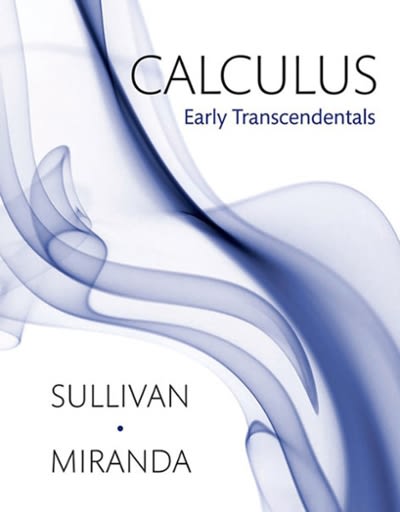Question
The deviations of observed responses around the conditional means y|x are called... averages. errors. mistakes. corrections. The equation for the group coded as 0 in
The deviations of observed responses around the conditional means y|x are called...
averages.
errors.
mistakes.
corrections.
The equation for the group coded as 0 in the dummy variable forms a baseline for comparison.
True
False
The adjusted R-squared takes account of...
the number of explanatory variables and the number of observations.
the number of outliers.
the number of observations.
the number of explanatory variables.
Which of the following are conditions for two-sample inferences?
- the data are simple random samples (SRS)
- no lurking variable that explains the differences
- groups have similar variances
- each sample meets the sample size condition
I, II, and IV
I, II, and III
I, II, III, and IV
I, III, and IV
The multiple regression model (MRM) models the association in the population between multiple explanatory variables and response.
True
False
The square of any correlation can be interpreted as the r2 of the regression of one variable on the other.
True
False
In regression analysis, the associated variable...
defines the x-axis and is called the explanatory variable or predictor.
defines the z-axis and is called the lurking variable.
defines the y-axis and is called the response.
none of the above.
Failure to reject H0 shows that B1 might be zero, not that it is zero.
True
False
Deviations of the residuals from normality may suggest an important omitted variable.
True
False
The intercept and slope for the group coded as 0 in the dummy variable are the intercept and slope of the explanatory variable in the multiple regression.
True
False
The slope of the dummy variable is the sum of estimated intercepts.
True
False
Which of the following are improvements that help refine a model's fit to the data?
Transformations
Removing outliers
All of these are correct
Added explanatory variables
One should remove variables one at a time to make sure that you don't omit a useful variable that was disguised by collinearity.
True
False
The standard deviation of the residuals measures how much the residuals vary around the fitted line.
True
False
The product of two explanatory variables in a regression model is called...
variability.
covariance.
dependence.
interaction.
The squared correlation r2, or r-squared, determines the fraction of the variation accounted for by the least-squares regression line.
True
False
Which of the following are remedies for collinearity?
All of these are correct.
Remove redundant explanatory variables.
Do nothing.
Re-express the explanatory variables.
Attaching measurement units to b0 and b1 is a key initial step in interpreting these estimates.
True
False
The job of the standard error is to...
predict the sample to sample variation.
estimate the sample to sample variation.
predict the sample to sample variation.
estimate the mean-variance.
We use a scatterplot matrix to identify possible explanatory variables to add.
True
False
The horizontal deviations from the data points to the line are called residuals.
True
False
Failing to reject H0: B1 = 0
proves B1 > 0
proves B1 = 0
proves B1 < 0
does not prove B1 = 0
In regression analysis, the variable that we are trying to describe or predict...
defines the z-axis and is called the lurking variable.
defines the x-axis and is called the explanatory variable or predictor.
none of the above.
defines the y-axis and is called the response.
Which of the following are assumptions the SRM makes about errors?
All of these are correct
Equal variance
Normal
Independent
Which of the following are conditions for simple regression?
Random residual variation
All of these
No obvious lurking variable
Linear
Which of the following are reasons for removing an interaction that is not statistically significant?
- simplicity
- collinearity
- covariance
II and III
I and II
I, II, and III
I and III
A scatterplot matrix allows us to determine visually how strong the association is among the different pairs of variables.
True
False
The slope of the interaction is the difference between estimated slopes in the simple regressions.
True
False
A variable is a confounding variable if it is correlated with the response and the two groups differ with respect to this variable.
True
False
The formula for the residual degrees of freedom in a multiple regression is...
k - 1
n - k
n - k - 1
n - 1
Step by Step Solution
There are 3 Steps involved in it
Step: 1

Get Instant Access to Expert-Tailored Solutions
See step-by-step solutions with expert insights and AI powered tools for academic success
Step: 2

Step: 3

Ace Your Homework with AI
Get the answers you need in no time with our AI-driven, step-by-step assistance
Get Started


